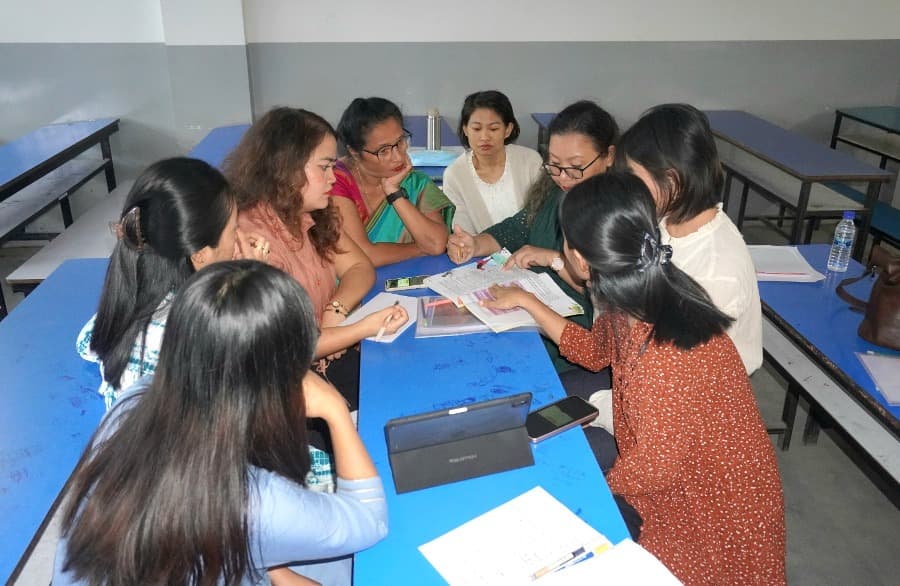THURSDAY, NOVEMBER 20, 2025
- Home
- Workshop on educational evaluation for teachers concludes in Dimapur
Workshop on educational evaluation for teachers concludes in Dimapur
A two-day Educational Evaluation workshop for Secondary Teacher Educators concluded at Unity College of Teacher Education, enhancing skills in assessment and test design.
Share

MOKOKCHUNG — A two-day workshop on Educational Evaluation for Secondary Teacher Educators of Nagaland concluded at Unity College of Teacher Education (UCTE), Dimapur, on November 19.
The workshop was hosted by UCTE, Dimapur, and organised by Mokokchung College of Teacher Education (MCTE) under the sponsorship of the Department of Higher Education, Government of Nagaland.
The workshop aimed to enhance competencies in outcome-based assessment, learning outcome formulation, blueprint preparation, teacher-made tests, and question paper design, addressing long-standing gaps in evaluation practices in teacher education institutions across the state.
In her inaugural-cum-orientation address, Dr. T Alemla Longkumer, programme coordinator and principal of MCTE, underscored the centrality of evaluation in the educational process and stressed the need for collective action toward a more uniform and meaningful evaluation system.
She called for a decisive departure from rote-driven, examination-centric practices toward assessments that nurture higher-order thinking. “This workshop signals the dawn of a more purposeful, productive, and outcome-orientated evaluation paradigm in Nagaland,” she declared.
Also read: DIPR nodal department for Nagaland’s live entertainment economy
Kohima Regional Centre participates in IGNOU's 40th anniversary
The first day immersed participants in intensive technical sessions on learning outcomes and assessments, teacher-made tests, and 2D blueprint development. Participants engaged in hands-on activities such as constructing diverse questions and drafting blueprints aligned with learning objectives.
During the discussion hour, the need for mindset changes was highlighted. Dr. Bendangyapangla reminded the gathering that teacher education is a “man-making profession” that demands rigorous yet humane evaluation standards.
Day two focused on more specialised dimensions of educational evaluation with guided practices on 3D blueprint construction; design of marking schemes and scoring keys; techniques for assembling balanced question papers; and question-wise analysis. Participants also analysed sample question papers and created complete blueprints, applying concepts learned during the workshop.
In a reflective session, Dr. Elizabeth Walling advocated for uniformity in teacher-made tests across institutions and encouraged the inclusion of application-orientated questions to enhance assessment quality and discourage rote learning.

